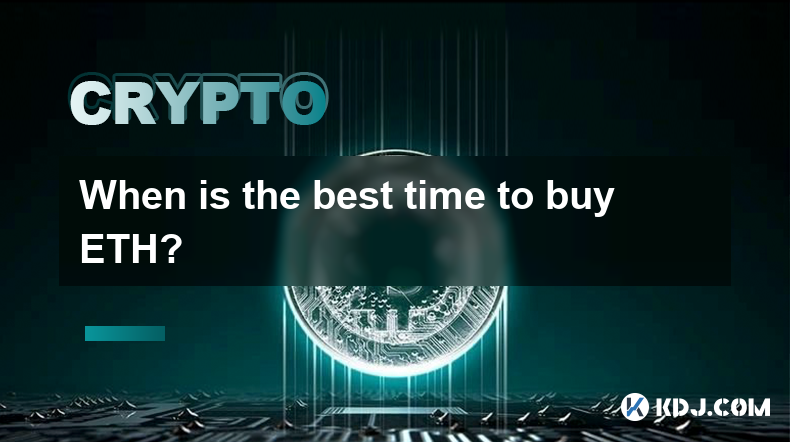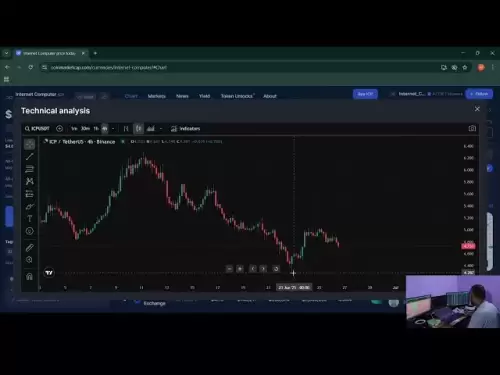-
 Bitcoin
Bitcoin $107,247.2038
-0.18% -
 Ethereum
Ethereum $2,424.7947
0.34% -
 Tether USDt
Tether USDt $1.0003
-0.02% -
 XRP
XRP $2.1171
-3.33% -
 BNB
BNB $645.6618
0.06% -
 Solana
Solana $141.5898
-1.32% -
 USDC
USDC $0.9998
0.00% -
 TRON
TRON $0.2710
-0.41% -
 Dogecoin
Dogecoin $0.1602
-2.99% -
 Cardano
Cardano $0.5553
-2.28% -
 Hyperliquid
Hyperliquid $36.3019
-2.42% -
 Bitcoin Cash
Bitcoin Cash $491.7212
2.04% -
 Chainlink
Chainlink $13.0810
-0.23% -
 Sui
Sui $2.6080
-5.06% -
 UNUS SED LEO
UNUS SED LEO $9.0040
-0.05% -
 Stellar
Stellar $0.2350
-3.06% -
 Avalanche
Avalanche $17.2294
-2.31% -
 Toncoin
Toncoin $2.8075
-1.05% -
 Shiba Inu
Shiba Inu $0.0...01121
-3.43% -
 Litecoin
Litecoin $84.2215
-0.32% -
 Hedera
Hedera $0.1429
-4.88% -
 Monero
Monero $312.2199
-0.90% -
 Dai
Dai $0.9997
-0.01% -
 Ethena USDe
Ethena USDe $0.9999
-0.02% -
 Polkadot
Polkadot $3.2973
-2.60% -
 Bitget Token
Bitget Token $4.4742
3.12% -
 Pi
Pi $0.5631
-10.10% -
 Uniswap
Uniswap $6.7817
-2.06% -
 Pepe
Pepe $0.0...09252
-3.74% -
 Aave
Aave $251.3830
-2.24%
When is the best time to buy ETH?
Predicting the perfect time to buy ETH is impossible; focus on understanding market cycles, using DCA, and assessing your risk tolerance for better investment decisions.
Mar 27, 2025 at 11:28 pm

Timing the Market: An Impossible Feat in the ETH Market
Predicting the perfect moment to buy Ethereum (ETH) is akin to predicting the weather a year in advance – incredibly difficult, if not impossible. The cryptocurrency market is notoriously volatile, influenced by a complex interplay of factors ranging from regulatory announcements and technological developments to market sentiment and macroeconomic conditions. There's no magic formula or guaranteed strategy.
Understanding Market Cycles and Trends
Instead of searching for the "best" time, focus on understanding the cyclical nature of the crypto market. Historically, ETH, like Bitcoin, has experienced periods of significant growth (bull markets) followed by corrections (bear markets). Bull markets are characterized by rising prices and increased investor optimism, while bear markets see falling prices and a more cautious investor sentiment. Recognizing these cycles can help inform your investment strategy, but it won't predict the exact bottom or top.
Analyzing Technical Indicators
Many traders utilize technical indicators to gauge potential buying opportunities. These indicators, derived from price and volume data, can provide insights into market trends. However, it's crucial to remember that technical analysis is not foolproof. Popular indicators include moving averages, relative strength index (RSI), and MACD. Understanding these tools requires significant study and experience. Don't rely solely on them for investment decisions.
Fundamental Analysis: Assessing ETH's Underlying Value
Fundamental analysis focuses on evaluating the intrinsic value of ETH. This involves examining factors such as the Ethereum network's adoption rate, the development of new technologies (like layer-2 scaling solutions), and the overall health of the DeFi ecosystem. A strong fundamental outlook suggests long-term potential, but it doesn't dictate short-term price movements. A robust fundamental picture can increase confidence in long-term investment, but timing remains challenging.
Dollar-Cost Averaging (DCA): A Strategy for Reducing Risk
Dollar-cost averaging (DCA) is a strategy where you invest a fixed amount of money at regular intervals, regardless of the price. This approach mitigates the risk of investing a lump sum at a market peak. By consistently buying ETH over time, you average out the price, potentially reducing the impact of volatility. DCA is a passive strategy that minimizes emotional decision-making.
Considering Your Risk Tolerance and Investment Goals
Before investing in ETH, carefully assess your risk tolerance and investment goals. Cryptocurrencies are inherently risky assets, and you could lose some or all of your investment. Only invest what you can afford to lose. Define your investment goals – are you looking for short-term gains or long-term growth? This will influence your approach to timing your purchase.
The Role of News and Events
Major news events, such as regulatory changes or significant technological upgrades, can significantly impact ETH's price. Staying informed about relevant news is important, but avoid making impulsive decisions based solely on short-term news cycles. News can influence market sentiment, but it's rarely a reliable predictor of long-term price movements.
The Importance of Patience and Discipline
Successful investing in cryptocurrencies requires patience and discipline. Avoid chasing short-term gains or panicking during market corrections. Stick to your investment strategy and avoid emotional decision-making. Remember that market fluctuations are normal, and attempting to time the market perfectly is often futile.
Diversification: Spreading Your Investment Risk
Diversifying your portfolio across different assets, including other cryptocurrencies and traditional investments, can help reduce overall risk. Don't put all your eggs in one basket. Diversification is a crucial risk management technique.
Staying Updated on Market Trends
Continuously monitoring market trends and staying informed about developments within the Ethereum ecosystem is crucial. However, avoid relying solely on social media or speculative opinions. Focus on credible sources and conduct your own thorough research.
Learning from Past Market Cycles
Analyzing past market cycles can offer valuable insights into potential future trends. However, remember that past performance is not indicative of future results. Use historical data to inform your understanding, but don't rely on it for precise predictions.
Understanding the Ethereum Ecosystem
Gaining a comprehensive understanding of the Ethereum ecosystem, including its technology, applications, and community, is essential for making informed investment decisions. The more you understand the underlying technology and its potential, the better equipped you'll be to make sound investment choices.
Utilizing Trading Strategies
Various trading strategies, such as scalping, day trading, and swing trading, can be employed in the ETH market. However, each strategy carries its own level of risk and requires specific knowledge and skills. Choose a strategy that aligns with your risk tolerance and experience level.
Seeking Professional Financial Advice
Consider seeking advice from a qualified financial advisor before making any significant investment decisions. They can help you assess your risk tolerance, define your investment goals, and develop a suitable investment strategy. Professional guidance can be invaluable, especially for those new to cryptocurrency investing.
Frequently Asked Questions
Q: Is there a guaranteed "best" time to buy ETH?
A: No. Predicting the exact bottom or top of the market is impossible. Focus on a long-term strategy rather than trying to time the market perfectly.
Q: How can I reduce the risk of investing in ETH?
A: Use dollar-cost averaging (DCA), diversify your portfolio, and only invest what you can afford to lose.
Q: What factors influence ETH's price?
A: Many factors influence ETH's price, including regulatory announcements, technological developments, market sentiment, and macroeconomic conditions.
Q: Should I rely on technical indicators alone for investment decisions?
A: No. Technical indicators are helpful tools, but they are not foolproof. Consider fundamental analysis and your own risk tolerance.
Q: What is the role of news and events in ETH price movements?
A: News and events can significantly impact ETH's price, but they should not be the sole basis for investment decisions. Avoid making impulsive decisions based on short-term news cycles.
Q: How important is understanding the Ethereum ecosystem?
A: Understanding the Ethereum ecosystem is crucial for making informed investment decisions. The more you know about the technology and its potential, the better you can assess its long-term value.
Disclaimer:info@kdj.com
The information provided is not trading advice. kdj.com does not assume any responsibility for any investments made based on the information provided in this article. Cryptocurrencies are highly volatile and it is highly recommended that you invest with caution after thorough research!
If you believe that the content used on this website infringes your copyright, please contact us immediately (info@kdj.com) and we will delete it promptly.
- CESS, TGE, and Decentralized AI: A New Era for Data Sovereignty
- 2025-06-27 03:52:13
- Dogecoin's Comeback vs. Little Pepe's 50x Potential: Where's the Smart Money Going?
- 2025-06-27 02:50:12
- Cryptos, Troller Cat, and ROI: A New Era of Meme Coin Investing?
- 2025-06-27 02:32:05
- USDT on TRON: Stablecoin Supremacy in the Digital Age
- 2025-06-27 03:52:13
- Trump, Crypto, and Stablecoins: A New York Minute on the Digital Frontier
- 2025-06-27 02:54:00
- WLFI Token's Transferability, USD1 Stablecoin Audit, and Trump's Crypto Play: What's the Deal?
- 2025-06-27 03:56:47
Related knowledge

How to customize USDT TRC20 mining fees? Flexible adjustment tutorial
Jun 13,2025 at 01:42am
Understanding USDT TRC20 Mining FeesMining fees on the TRON (TRC20) network are essential for processing transactions. Unlike Bitcoin or Ethereum, where miners directly validate transactions, TRON uses a delegated proof-of-stake (DPoS) mechanism. However, users still need to pay bandwidth and energy fees, which are collectively referred to as 'mining fe...

USDT TRC20 transaction is stuck? Solution summary
Jun 14,2025 at 11:15pm
Understanding USDT TRC20 TransactionsWhen users mention that a USDT TRC20 transaction is stuck, they typically refer to a situation where the transfer of Tether (USDT) on the TRON blockchain has not been confirmed for an extended period. This issue may arise due to various reasons such as network congestion, insufficient transaction fees, or wallet-rela...

How to cancel USDT TRC20 unconfirmed transactions? Operation guide
Jun 13,2025 at 11:01pm
Understanding USDT TRC20 Unconfirmed TransactionsWhen dealing with USDT TRC20 transactions, it’s crucial to understand what an unconfirmed transaction means. An unconfirmed transaction is one that has been broadcasted to the blockchain network but hasn’t yet been included in a block. This typically occurs due to low transaction fees or network congestio...

How to check USDT TRC20 balance? Introduction to multiple query methods
Jun 21,2025 at 02:42am
Understanding USDT TRC20 and Its ImportanceUSDT (Tether) is one of the most widely used stablecoins in the cryptocurrency market. It exists on multiple blockchain networks, including TRC20, which operates on the Tron (TRX) network. Checking your USDT TRC20 balance accurately is crucial for users who hold or transact with this asset. Whether you're sendi...

What to do if USDT TRC20 transfers are congested? Speed up trading skills
Jun 13,2025 at 09:56am
Understanding USDT TRC20 Transfer CongestionWhen transferring USDT TRC20, users may occasionally experience delays or congestion. This typically occurs due to network overload on the TRON blockchain, which hosts the TRC20 version of Tether. Unlike the ERC20 variant (which runs on Ethereum), TRC20 transactions are generally faster and cheaper, but during...

The relationship between USDT TRC20 and TRON chain: technical background analysis
Jun 12,2025 at 01:28pm
What is USDT TRC20?USDT TRC20 refers to the Tether (USDT) token issued on the TRON blockchain using the TRC-20 standard. Unlike the more commonly known ERC-20 version of USDT (which runs on Ethereum), the TRC-20 variant leverages the TRON network's infrastructure for faster and cheaper transactions. The emergence of this version came as part of Tether’s...

How to customize USDT TRC20 mining fees? Flexible adjustment tutorial
Jun 13,2025 at 01:42am
Understanding USDT TRC20 Mining FeesMining fees on the TRON (TRC20) network are essential for processing transactions. Unlike Bitcoin or Ethereum, where miners directly validate transactions, TRON uses a delegated proof-of-stake (DPoS) mechanism. However, users still need to pay bandwidth and energy fees, which are collectively referred to as 'mining fe...

USDT TRC20 transaction is stuck? Solution summary
Jun 14,2025 at 11:15pm
Understanding USDT TRC20 TransactionsWhen users mention that a USDT TRC20 transaction is stuck, they typically refer to a situation where the transfer of Tether (USDT) on the TRON blockchain has not been confirmed for an extended period. This issue may arise due to various reasons such as network congestion, insufficient transaction fees, or wallet-rela...

How to cancel USDT TRC20 unconfirmed transactions? Operation guide
Jun 13,2025 at 11:01pm
Understanding USDT TRC20 Unconfirmed TransactionsWhen dealing with USDT TRC20 transactions, it’s crucial to understand what an unconfirmed transaction means. An unconfirmed transaction is one that has been broadcasted to the blockchain network but hasn’t yet been included in a block. This typically occurs due to low transaction fees or network congestio...

How to check USDT TRC20 balance? Introduction to multiple query methods
Jun 21,2025 at 02:42am
Understanding USDT TRC20 and Its ImportanceUSDT (Tether) is one of the most widely used stablecoins in the cryptocurrency market. It exists on multiple blockchain networks, including TRC20, which operates on the Tron (TRX) network. Checking your USDT TRC20 balance accurately is crucial for users who hold or transact with this asset. Whether you're sendi...

What to do if USDT TRC20 transfers are congested? Speed up trading skills
Jun 13,2025 at 09:56am
Understanding USDT TRC20 Transfer CongestionWhen transferring USDT TRC20, users may occasionally experience delays or congestion. This typically occurs due to network overload on the TRON blockchain, which hosts the TRC20 version of Tether. Unlike the ERC20 variant (which runs on Ethereum), TRC20 transactions are generally faster and cheaper, but during...

The relationship between USDT TRC20 and TRON chain: technical background analysis
Jun 12,2025 at 01:28pm
What is USDT TRC20?USDT TRC20 refers to the Tether (USDT) token issued on the TRON blockchain using the TRC-20 standard. Unlike the more commonly known ERC-20 version of USDT (which runs on Ethereum), the TRC-20 variant leverages the TRON network's infrastructure for faster and cheaper transactions. The emergence of this version came as part of Tether’s...
See all articles
























































































